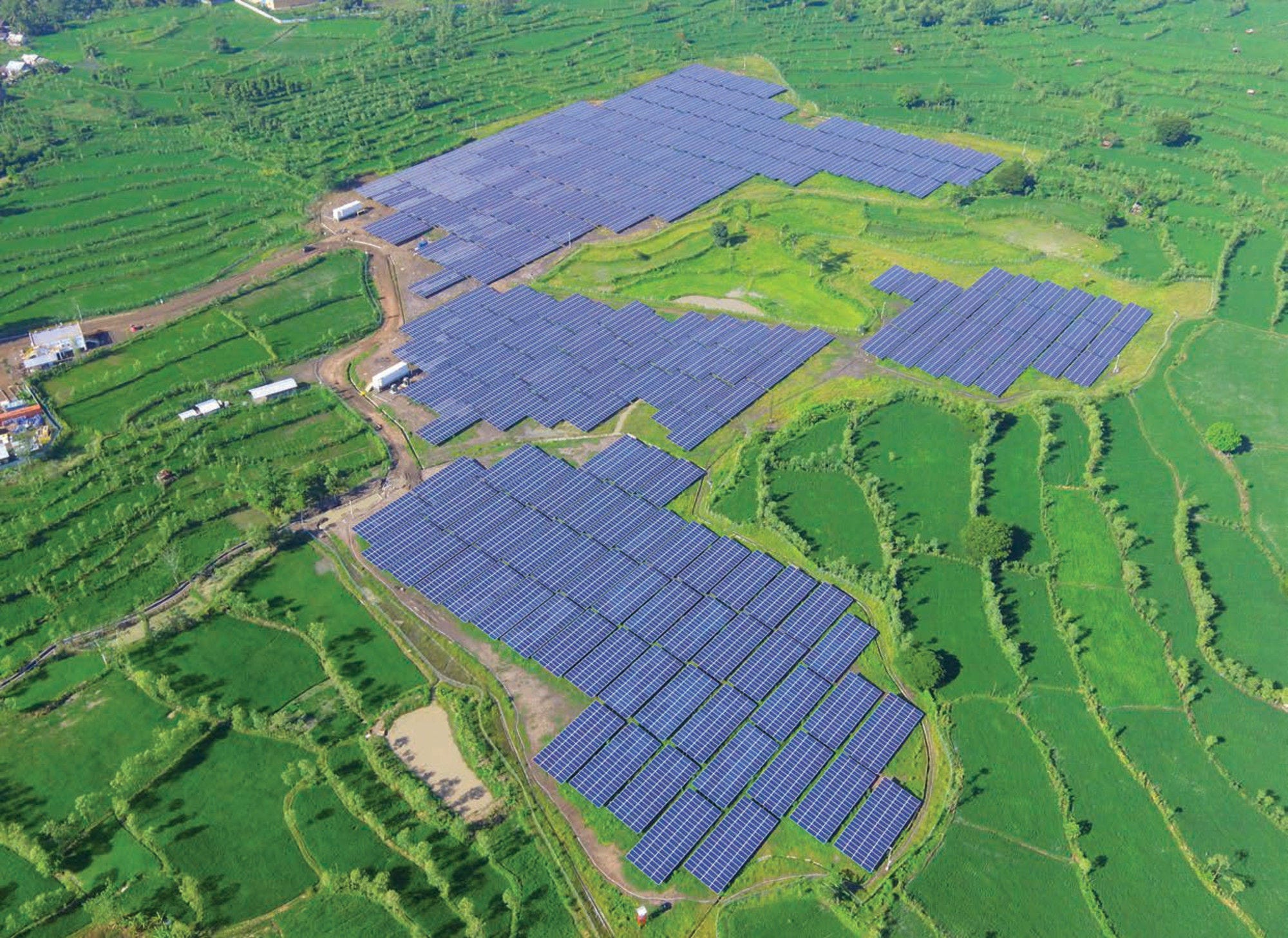The Clean Energy Finance and Investment Policy Review of Indonesia is one of the key outputs of the OECD Clean Energy Finance and Investment Mobilisation (CEFIM) Programme. The CEFIM Programme aims to support governments in emerging economies in South and Southeast Asia as well as Latin America to unlock finance and investment in renewable electricity and energy efficiency (“clean energy”).
Building on fruitful co-operation between the Government of Indonesia and the OECD, as well as current policy reforms to facilitate investment and renewable energy development, Indonesia was a natural choice to undertake this first-of-its-kind Clean Energy Finance and Investment Policy Review. The Review supports Indonesia’s efforts to realise a clean energy transition by providing a comprehensive overview of the current policy environment, highlighting progress and identifying opportunities for strengthening policy interventions that can help to scale up clean energy finance and investment.
The OECD is grateful to the Government of Indonesia for its co-operation in providing information; for the organisation of the virtual review mission (October-November 2020); for the virtual focus group discussions and webinars in 2020; and for the Stakeholder Dialogue held in Jakarta on 8 November 2019. Particular thanks is due to the Coordinating Ministry for Economic Affairs, under the leadership of Montty Girianna, Deputy Coordinating Minister, and the support from his Deputy Assistants, Dida Gardera, Agus Wibowo, Muksin, and their team. CEFIM is also grateful to all the government institutions involved in the cross‑agency steering committee specifically formed for the Review, including the Financial Services Authority (particularly the International Department), the Investment Coordination Board, the Ministry of Energy and Mineral Resources (particularly the Directorate-General of Electricity; the Directorate-General for New and Renewable Energy and Energy Conservation; as well as the Ministry’s Research & Development Agency and Training Centre), the Ministry of Finance (particularly the Fiscal Policy Agency and the Directorate-General of Budget Financing and Risk Management), the Ministry of Environment and Forestry, the Ministry of Industry, the Ministry of National Development Planning (BAPPENAS), and state-owned enterprises such as the Indonesian Guarantee Fund, the national power utility, PT PLN (Perusahaan Listrik Negara), and the infrastructure financing company, PT SMI (Sarana Multi-infrastruktur).
The Review was managed by Cecilia Tam, Team Leader of the Clean Energy Finance and Investment Mobilisation Programme. Jeremy Faroi co-ordinated the research and Review process. Authors of the report were John Dulac, Jeremy Faroi and Cecilia Tam from the OECD Environment Directorate and Randi Kristiansen from the International Energy Agency (IEA). Aang Darmawan provided in-country support, particularly in facilitating coordination between the Government of Indonesia and the Review authors. Dominique Haleva provided administrative support and copy-edited the report. OECD Environment Director Rodolfo Lacy led the dialogue mission in November 2019 and launched the virtual Review mission.
Several colleagues in the OECD Secretariat provided input and feedback, including Simon Buckle, Thiana Bule, Ivana Capozza, Alexandre De Crombrugghe, Massimo Geloso Grosso, Eija Kiiskinen, Britta Labhun, Mireille Martini, Jens Sedemund and Stephen Thomsen. We also appreciate the comments provided from Lucila Arboleya Sarazola, Sylvia Elisabeth Beyer, Nathaniel Lewis George and Mike Waldron of the IEA.
The preparation of the Review also benefitted from a broad consultation process with a range of stakeholders. We are grateful for the contributions of Bertrand Poche and Nurrahman Waluyo (Agence Française de Développement); Gina Lisdiana (Allotrope); Florian Kitt (Asian Development Bank); Russell Marsh and other colleagues (ASEAN Low-Carbon Energy Programme) as well as Mike Crosetti, Laily Himayati, Damar Pranadi and Rizka Sari (MENTARI Programme); Marsha Sudar (Australia Embassy in Indonesia); Ian Kay and Louise Vickery (Australia Renewable Energy Agency); Trita Katriana (Canada Embassy in Indonesia); Andrew Glumac (Carbon Disclosure Project); Bianca Sylvester (Clean Energy Finance Corporation); Guntur Sutiyono, Jannata Giwangkara and Emi Minghui Gui (Climate Works Australia); Sidonie Gwet (Coalition for Green Capital); Lars Kruse (Cowi); Stephan Skare Enevoldsen (Danish Energy Agency); Raditya Pramudiantoro (Danone); Muhammed Sayed (Development Bank of South Africa); Mylene Celestino Capongcol (Department of Energy of the Philippines); Tom Dreesen (EPS Capital); Marcel Sylvius and his team, Norbert Maas, Satria Wira Tenaya, and Dessi Yuliana (Global Green Growth Institute); Leo Hyoungkun Park (Green Climate Fund); Raphaelle Vallet (Green Investment Group); Mathieu Geze, Dhiah Karsiwulan and Syaifuddin Suaib (HDF Energy); Fabby Tumiwa (Institute for Economic Services Reform); Jinlei Feng, Costanza Strinati, Nicolas Wagner and Badariah Yosiyana (International Renewable Energy Agency); Ogawa Tadayuki (Japan International Co-operation Agency); Dong Joo Kim (Jeju Energy Corporation); Jon Respati and other colleagues (Indonesia’s Energy Conservation and Energy Society); Paul Butarbutar, Surya Darma and other colleagues (Indonesia’s Renewable Energy Society); Bold Magavan (Mongolian Green Finance Corporation); Sumi Subramaniam and Riri Hijriah (New Zealand Embassy in Indonesia); Sam Kimmins (Renewable Energy 100); Pawan Kumar Bharti (Small, Industry Development Bank of India); Mr. Peter Hobson (Sustainable Development Capital LLP); Katherine Stodulka (Blended Finance Task Force and SystemiQ); Rizkiasari Joedawinata (World Wide Fund for Nature) and other colleagues of the Secretariat and members of the Indonesian Sustainable Finance Initiative; and Bona Raymond (independent sustainable finance specialist). Last but not least, the OECD is thankful to the numerous experts in OECD member country embassies based in Indonesia who were consulted throughout the Review process, with special thanks to His Excellency Bo Larsen, Danish Ambassador, His Excellency Rasmus Abildgaard Kristensen, former Danish Ambassador, Thomas Capral Henriksen and his team (Danish Embassy) for their support on the Review. We are also grateful to all the participants in the virtual Review mission who provided invaluable input to the Review.
This report was made possible through the generous contribution of Denmark. Input to the report from Randi Kristiansen was made possible thanks to the IEA’s Clean Energy Transitions in Emerging Economies programme, which received funding from the European Union’s Horizon 2020 research and innovation programme under grant agreement No. 952363.
The OECD Working Party on Climate, Investment and Development discussed the draft Review at its meeting on 25 March 2021. Special thanks to Gemma O’ Reilly, Economist, Irish Climate Change Advisory Council for moderating the discussions.
